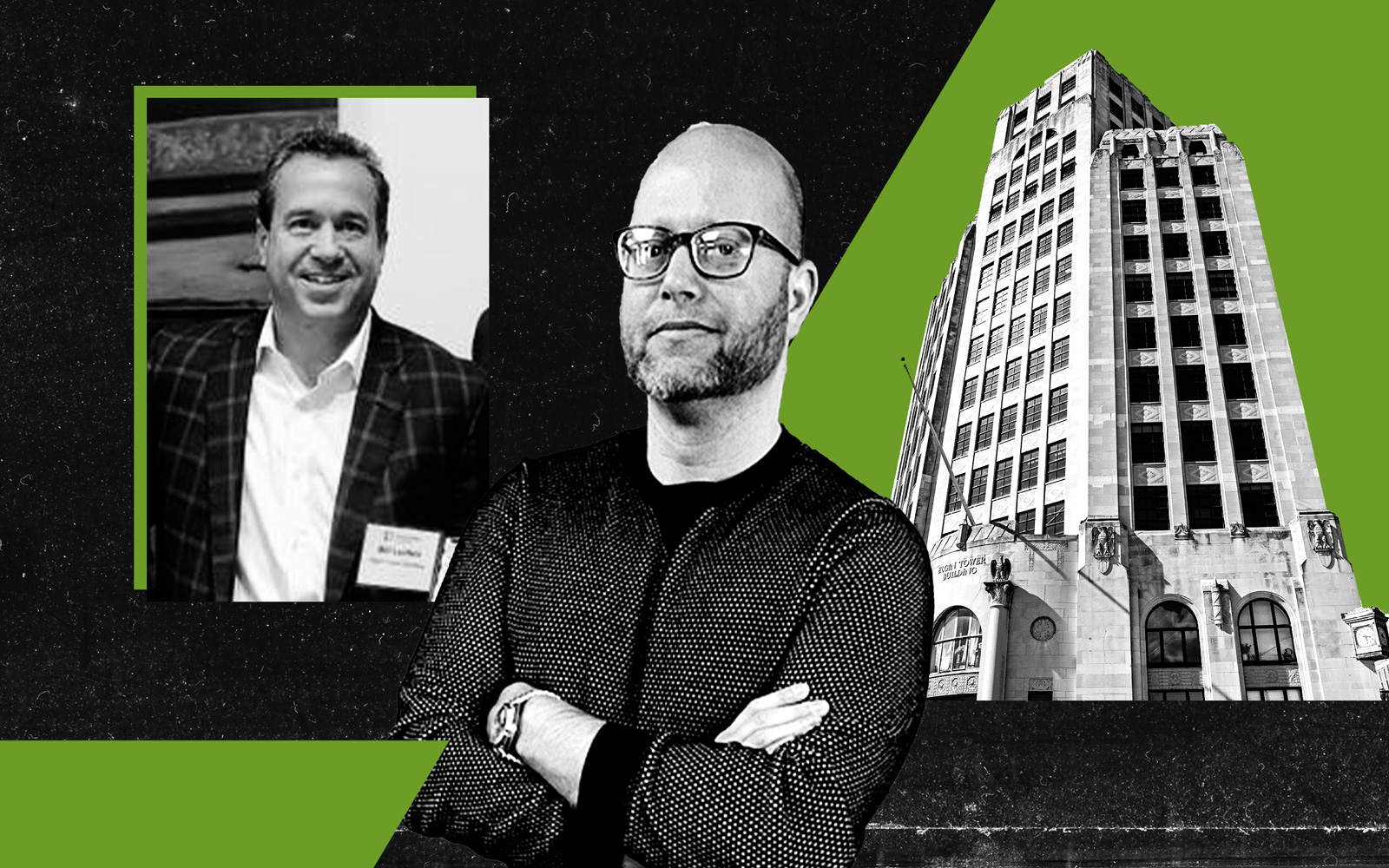After six years of plotting, developer Justin Fern is moving on another big office-to-residential conversion of an historic Illinois property.
Following delays due to the pandemic and difficult markets for financing, Fern’s Rockford-based firm Urban Equity Properties scored local officials’ approval and public financing to turn the 200,000-square-foot former State Farm office building in downtown Bloomington into 183 apartments with ground-floor retail and a steakhouse on the 13th floor. The project is set to cost about $68 million.
The developer has owned the building for six years, since buying it for essentially nothing from State Farm, which kept its headquarters in the building at 112 East Washington Street from the time it was built in 1929 until 1974. State Farm marketed the property for years starting in 2017, and moved its last employee out of the building in 2018 but was never able to find a buyer.
The nation’s largest insurer, which is headquartered in a separate Bloomington campus, toyed with demolishing the historic structure, but local residents voiced their desire to save and find a new use for the building. Urban Equity agreed to acquire the building for $100 in 2019 and fund the carrying costs for the property, such as its property taxes and other expenses that totaled about $70,000 a month at the time, Fern told The Real Deal.
“We purchased the property from State Farm for a song and a dance,” he said. “We probably saved them $1 million a year in carrying costs. I also had to invest a couple million instantly after purchasing it, just to secure it up with new camera systems, fob systems, and they had removed all the furniture, fixtures and equipment.”
He originally forecast a residential conversion for the property that would’ve yielded 230 apartments for just $40 million. The final plan approved by Bloomington officials this week came out to be more expensive and smaller.
After taking over the building, Fern’s firm struck a deal with Keplr Vision to lease four floors of the building as offices for five years. He contemplated trying to start converting the rest of the building into housing while Keplr was renting but ultimately waited, while the pandemic and interest rate hikes weighed on the feasibility of real estate development.
The apartments will be dubbed G.J. Lofts, an homage to State Farm founder G.J. Mecherle, and will add to Urban Equity’s reputation for restoring historic properties, as it manages over $200 million in assets across five cities. One of its latest projects was the Elgin Tower in a northwest suburb of Chicago, where it paid $6 million to buy the 15-story building out of foreclosure in 2022 and planned to pour millions more dollars into sprucing up the 44-unit apartment property after a previous developer kicked off its $17 million conversion from an outdated bank and office property.
“The Elgin building is fully occupied and doing fantastic,” Fern said.
His firm scored a range of incentives from Bloomington, including fee waivers and a reimbursement of 92 percent of property tax revenues created by the building’s additional value, through a tax increment financing district. The lower tax bill at the property will be in effect until 2048. The city also will reimburse Urban Equity 60 percent of the city sales, food and beverage, and retailers occupation taxes generated by the building.
Urban Equity could expand further in Bloomington. If no progress is made on the vacant Coachman Motel property within a year, the city has agreed to sell the site to the firm for $1, with a five-year deadline for construction to start or the village would take the property back.
Read more



